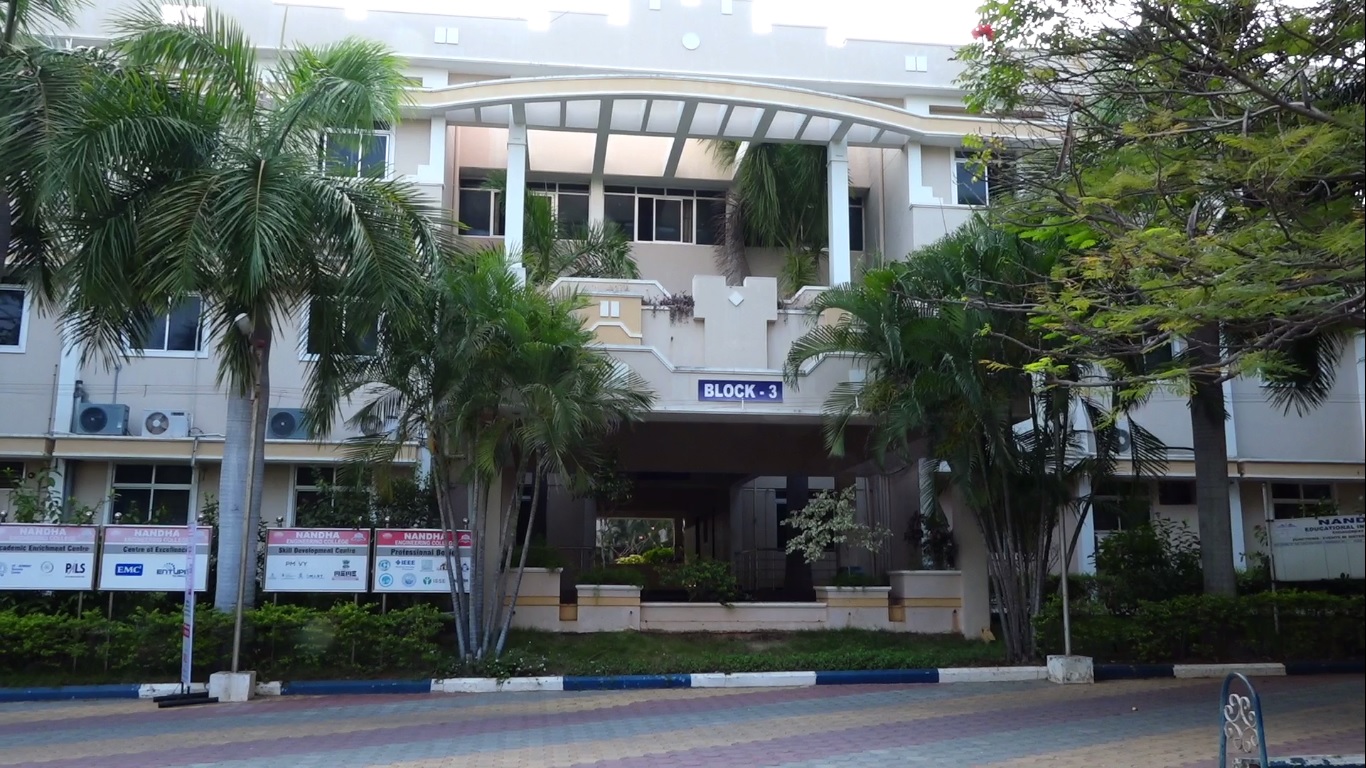DEPARTMENT OF INFORMATION TECHNOLOGY
 |
ACCREDITATION
The Information and Technology Department has been Re-accredited by National Board of Accreditation, AICTE, New Delhi.
ABOUT THE DEPARTMENT
The diverse developments in computer technology, communication explosion and the internet are bound to make a marked change in our future life. These form the basis for “Information Technology” – the technology coming decades. The department of IT installed confidence among the students to make themselves as experts in the field of computers and to meet the challenges of the information evaluation, NEC with an insight of upcoming trends tries to meet the requirements of this changing global scenario.
The information technology department was started in the year 2001 and provides undergraduate programs in B.Tech (IT). The students are regularly being trained in leading edge technologies with a practical orientation.VISION
To build a prominent academic platform by disseminating quality technical education in the field of Information Technology to meet the changing needs of society.
MISSION
Department of Information Technology is committed to
- To produce professionally competent and ethically responsible graduates through a balanced curriculum.
- To empower the students in the thrust areas of information technology and Allied disciplines and to impart Entrepreneurial skills in the continually changing global market.
- To establish a learner-centered environment that encourages the adoption of emerging technologies in the changing needs of the society.
PROGRAM EDUCATIONAL OBJECTIVES (PEOs)
The graduates of Information Technology will be able to
PEO 1: Core Competency: Apply the knowledge of mathematics, science and engineering fundamentals to identify and solve technological problems by deploying various software tools for societal development.
PEO 2: Research, Innovation and Entrepreneurship: Implement recent tools, technologies and innovative ideas for leading successful careers in research / entrepreneurship and to excel in solving real world problems.
PEO 3: Ethics, Human Valued and Life-Long Learning: Exhibit professional ethics in the industry and possess the necessary skills for working in multi-disciplinary areas with focus on life-long learning.
PROGRAM OUTCOMES (POs)
PO 1: Engineering Knowledge: Apply the knowledge of mathematics, science, engineering fundamentals, and an engineering specialization to the solution of complex engineering problems.
PO 2: Problem Analysis: Identify, formulate, review research literature, and analyze complex engineering problems reaching substantiated conclusions using first principles of mathematics, natural sciences, and engineering sciences.
PO 3: Design and Development of Solutions: Design solutions for complex engineering problems and design system components or processes that meet the specified needs with appropriate consideration for the public health and safety, and the cultural, societal, and environmental considerations.
PO 4: Investigation of Complex Problems: Use research-based knowledge and research methods including design of experiments, analysis and interpretation of data, and synthesis of the information to provide valid conclusions.
PO 5: Modern Tool Usage: Create, select, and apply appropriate techniques, resources, and modern engineering and IT tools including prediction and modeling to complex engineering activities with an understanding of the limitations.
PO 6: The Engineer and Society: Apply reasoning acquired by the contextual knowledge to assess societal, health, safety, legal and cultural issues and the consequent responsibilities relevant to the professional Engineering practice.
PO 7: Environment & Sustainability: Understand the impact of the professional engineering solutions in societal and environmental contexts, and demonstrate the Knowledge of, and need for sustainable development.
PO 8: Ethics: Apply ethical principles and commit to professional ethics and responsibilities and norms of the engineering practice.
PO 9: Individual And Team Work: Function effectively as an individual, and as a member or leader in diverse teams, and in multidisciplinary settings.
PO 10: Communication: Communicate effectively on complex engineering activities with the engineering community and with society at large, such as, being able to comprehend and write effective reports and design documentation, make effective presentations, and give and receive clear instructions.
PO 11: Project Management And Finance: Demonstrate knowledge and understanding of the engineering and management principles and apply these to one‘s own work, as a member and leader in a team, to manage projects and in multidisciplinary environments.
PO 12: Lifelong Learning: Recognize the need for, and have the preparation and ability to engage in independent and life-long learning in the broadest context of technological change.
PROGRAM SPECIFIC OUTCOMES (PSOs)
PSO 1: Analyze, design and apply mathematical foundations, principles of computing, Algorithms, modeling and design of Information Technology based systems.
PSO 2: Develop problem-solving skills in the broad area of programming concepts and to manage interdisciplinary projects.



